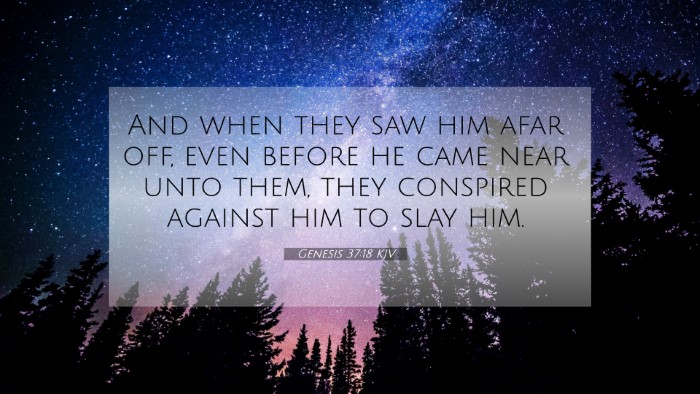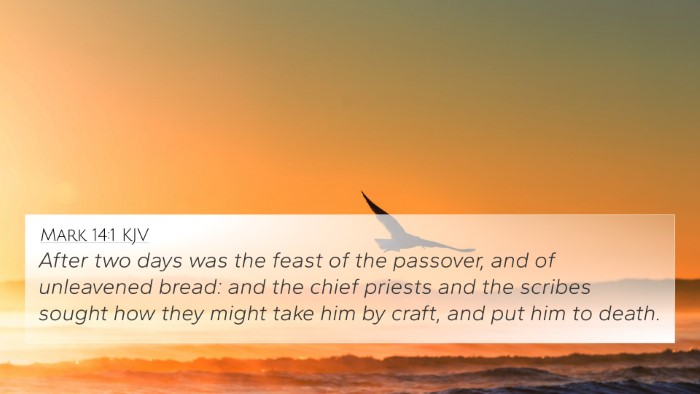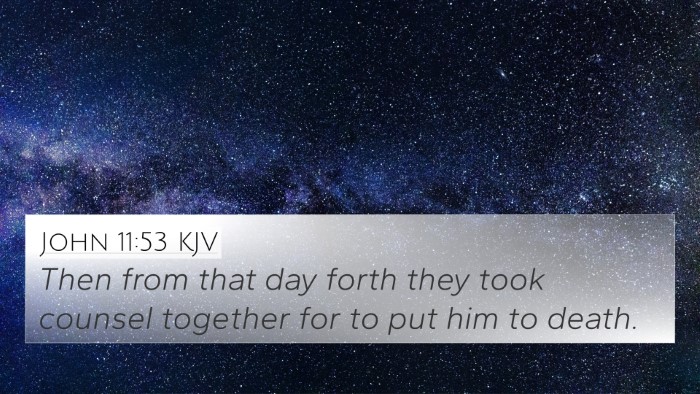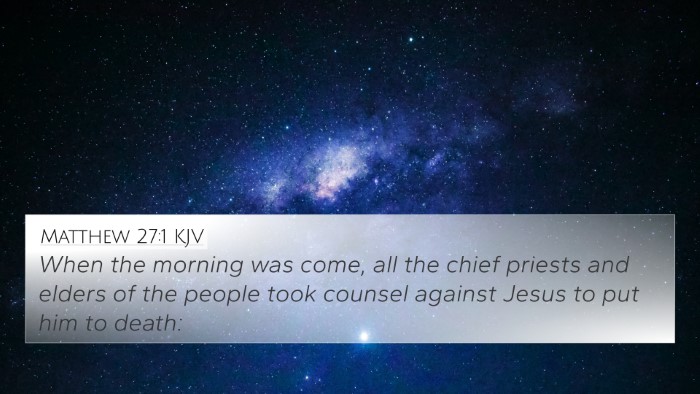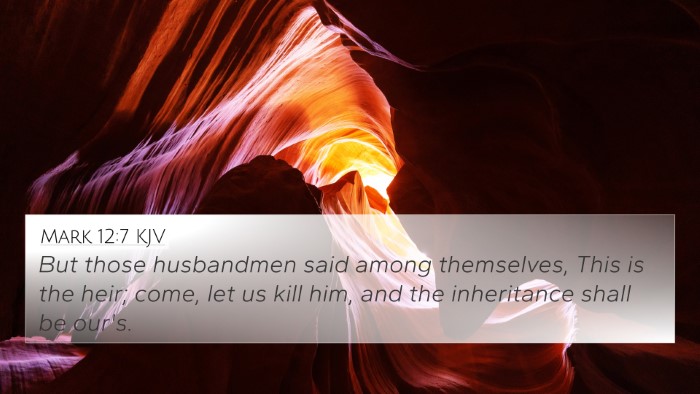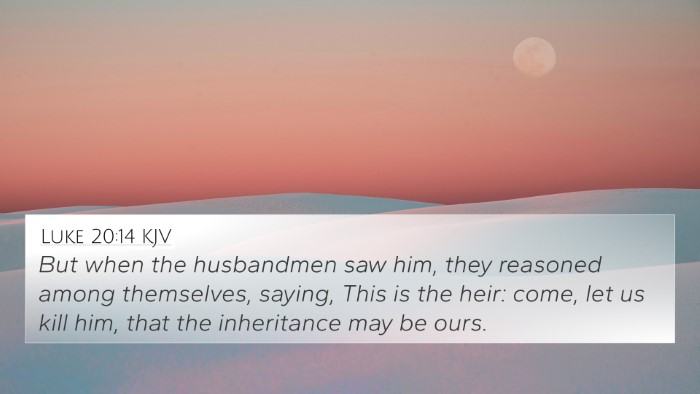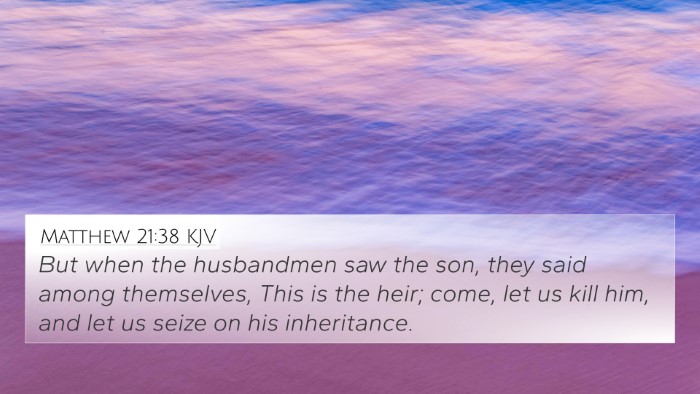Meaning and Interpretation of Genesis 37:18
Verse Reading: "And when they saw him afar off, even before he came near unto them, they conspired against him to slay him." (Genesis 37:18)
This verse marks a critical moment in the narrative of Joseph, illustrating not only the fragility of familial relationships but also the onset of Joseph's suffering which serves a greater purpose in God’s plan.
Contextual Analysis
The backdrop of Genesis 37 is adorned with themes of jealousy, betrayal, and divine providence. Joseph, favored by his father Jacob, suffers at the hands of his brothers who are envious of the love he receives and the dreams he interprets.
Commentary Insights
- Matthew Henry: Henry elaborates that this incident is not only about Joseph’s personal plight but reflects broader themes of sin and its consequences. The distance at which the brothers first see Joseph symbolizes the growing rift and animosity between them, a foreshadowing of greater trials ahead.
- Albert Barnes: Barnes notes that the conspiratorial nature of the brothers is indicative of human treachery. They do not just harbor jealousy; they take action to fulfill their malicious intent against their brother. This moment serves as a stark reminder of the human capacity for evil.
- Adam Clarke: Clarke emphasizes the prophetic nature of this moment, pointing out that Joseph’s subsequent trials will ultimately lead to his rise in Egypt and the salvation of many, including his own family. It symbolizes the mystery of God’s plans that often involve suffering before glory.
Connections and Cross-References
Genesis 37:18 can be linked to several other biblical texts that explore similar themes of jealousy, betrayal, and divine purpose:
- Genesis 4:8 - The story of Cain and Abel illustrates the deadly consequences of jealousy.
- Psalm 105:17-18 - This passage reflects on Joseph's suffering and God's sovereign plan.
- Matthew 21:38 - The parable of the wicked husbandmen shows how sonship can lead to betrayal and rejection.
- Acts 7:9-10 - Stephen recounts the story of Joseph, emphasizing God's providence amidst the betrayal.
- Romans 8:28 - This verse reassures believers of God's ability to work all things for good, paralleling Joseph’s circumstances.
- Genesis 39:1 - Joseph's descent into slavery sets the stage for God's intervention in his life.
- Romans 5:3-5 - This passage on suffering leading to hope resonates deeply with Joseph’s journey.
- Hebrews 11:22 - Highlights Joseph's faith in God's promises despite his suffering.
Thematic Connections
Genesis 37:18 reflects significant thematic threads throughout the Scriptures, particularly in relation to:
- The Nature of Jealousy: The initial act that prompts fatal actions reminds readers of how jealousy can lead to devastating consequences, as seen in the lives of Cain, Saul, and others.
- God’s Sovereignty in Suffering: A recurring motif where initial suffering leads to later triumph, exemplified in the life of Joseph and later in Christ.
- Redemption and Forgiveness: Joseph's story ultimately leads to reconciliation, highlighting God's plan for redemption through familial relationships.
Studying Genesis 37:18
For those looking to delve deeper into the implications of this verse, consider utilizing tools for Bible cross-referencing. Options include:
- Bible Concordance: Helps locate various scriptures that relate directly or thematically to Genesis 37:18.
- Bible Cross-Reference Guide: A resource for finding verses that correspond with the themes presented in this verse.
- Cross-Reference Bible Study: Methodologies that encourage exploration of related scriptures.
Conclusion
Genesis 37:18 serves as a deep well of meaning, resonating with timeless struggles and divine interventions. When seeking to understand this verse, consider the broader narrative and the intertwining of human actions with divine purposes.
As you reflect on the connections between this verse and others in the Bible, consider how each scripture enriches your understanding of God's message. This journey through cross-referencing biblical texts may provide profound insights into both ancient and modern faith experiences.


